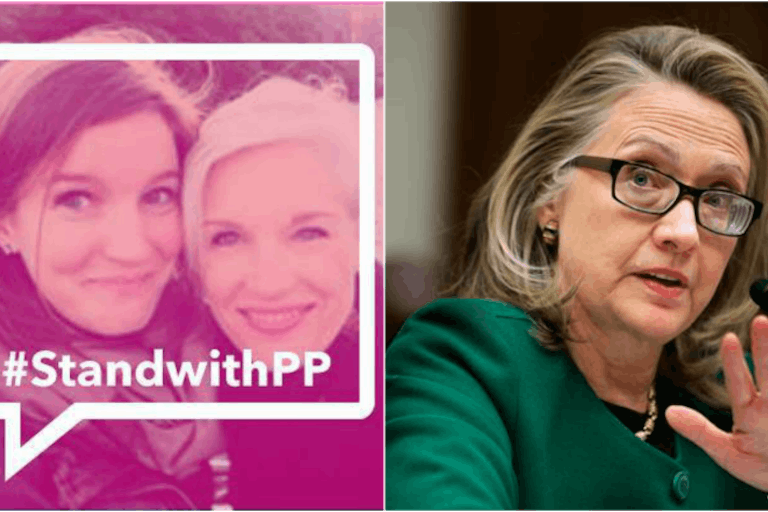
Planned Parenthood endorses Hillary Clinton: She’s everything we’ve ‘believed in and fought for’
Cassy Cooke
·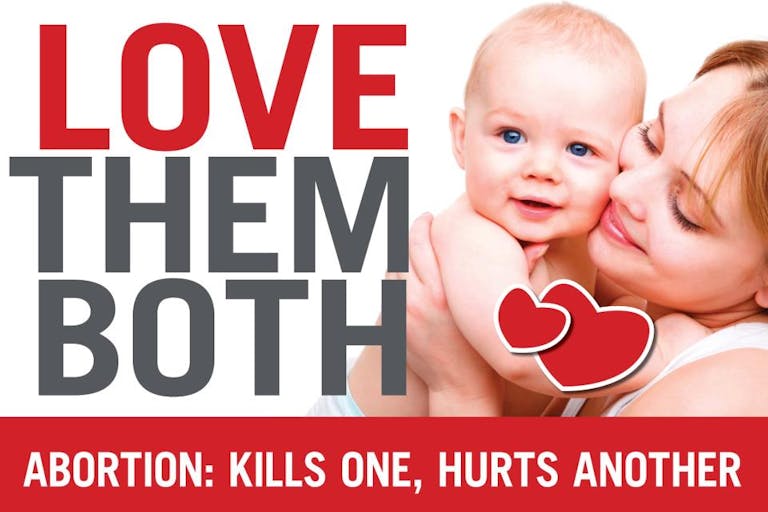
Analysis·By Christina Marie Bennett
“What about rape?” Caring responses to a hard question
When a pro-lifer utters an insensitive comment about rape, it’s bound to be repeated continually by every major news station in our country.
Remember Todd Akin? A more recent comment that Texas state Representative Jodie Laubenberg made about rape kits “cleaning out women” was widely circulated with literally hundreds of articles bashing Laubenberg for her comment. I agree that these comments are counterproductive and hurtful.
I also know abortion is harmful to women, regardless of the circumstances. It’s obvious that discussing abortion in the hard cases of rape, health of the mother, or a severely disabled child is far from easy. However, that doesn’t excuse us from engaging in these conversations. Here are a few ways to discuss the issue of rape and abortion with honesty and compassion.
1. Just Listen.
Someone once gave me an important piece of advice. “People don’t care how much you know, until they know how much you care.” One of the simplest ways to show a person you care is by listening to her.
Abortion is an issue that brings up deep emotions in people, as is rape. When you’re having a conversation about rape after abortion, it’s important to take a moment and evaluate the situation.
Who’s asking you the question? Does the question spring from her own pain (i.e., she was raped)? Is the question being thrown at you by a reporter or in a debate as a means to trap you? In the cases where a woman is asking from a place of pain, I’ve found it’s best to sit back and just listen. You can share facts, statistics, and truth later, but make sure you first respond with care for her heart. If the question is being offered in a means to “stump” you, it’s still important to listen, ponder, and respond with wisdom.
The rape/abortion question can also bring up intense anger in some individuals. Debating with a volatile person can often prove futile. Active and attentive listening can help to diffuse an otherwise hostile conversation.
2. Give the Child a Positive Face.
A woman who’s been raped may fear having a baby who will look like or remind her of her attacker. When she thinks of her child, negative images can arise. She may imagine her child growing up to be a criminal like the father. The baby inside her may feel to her like an unwanted intruder bent on destroying her life.
It’s important for women to know that children with unhealthy biological fathers can still turn out to be amazing people, and they nearly always do. Rebecca Kiessling and Ryan Bomberger are two individuals – among many – who were conceived in rape. Rebecca is an attorney, and Ryan’s a super-talented director, writer, and designer who has a beautiful wife and four gorgeous children – one of whom is adopted. Rebecca has a website that highlights the stories of beautiful people who were “products of rape.”
Article continues below
Dear Reader,
In 2026, Live Action is heading straight where the battle is fiercest: college campuses.
We have a bold initiative to establish 100 Live Action campus chapters within the next year, and your partnership will make it a success!
Your support today will help train and equip young leaders, bring Live Action’s educational content into academic environments, host on-campus events and debates, and empower students to challenge the pro-abortion status quo with truth and compassion.
Invest in pro-life grassroots outreach and cultural formation with your DOUBLED year-end gift!
Joan Kemp was a counselor at a rape crisis center. Kemp believes that negative feelings a mother may have for a child conceived in rape can fade with time. She writes:
After sexual assault there is, for varying lengths of time, a natural revulsion toward anything associated with the rape. This may include the location, or characteristics of the rapist such as his clothing, race, mustache, etc. It is normal for this feeling to attach to the unborn child conceived in rape. However, these feelings normally fade with time. When this does not happen spontaneously, counseling with someone qualified to treat victims of rape trauma is highly effective.
Rape victims I have worked with were aware of and distressed by the ‘inappropriateness’ of these feelings. They were anxious to overcome their revulsion of anyone and anything that reminded them of the rape. They would not, for instance, have welcomed anyone telling them that men of their attacker’s race are natural criminals. Nor do women welcome being told that their children conceived in rape are unworthy of life, genetically prone to crime, and bound to feel unwanted and bitter. A person in crisis is seeking positive solutions, not a counsel of despair.
3. Expose the Violence of Abortion.
Abortion is the termination of a growing human being. Yet Planned Parenthood claims that most women feel relief after an abortion. Some women will feel immediate relief after removing a child that they deemed problematic to their lives.
However, there are thousands of women and men who suffer from abortion. Women have died from so called “safe,” legal abortions. Some women and men mourn for ten, twenty, or more years because they feel responsible for the decision they made to end a life. We must share the truth that abortion doesn’t erase the pain of rape; it adds to it.
Kemp shares her thoughts:
Most incest victims are given no choice but abortion, just as they were given no choice about sex. I vividly recall one victim of incest/abortion whom I met years after the events. She said she still didn’t understand why she had to abort; it would not have been that much more trouble to see the pregnancy through, and she would have had one less trauma to deal with. I am familiar with no case of incest-related abortion that did not make matters worse for the victim. These abortions are done for the benefit of the adults involved, not the incest victim.
In the case of adult rape victims, abortion is equally destructive. Women report that they are suffering from the trauma of abortion long after the rape trauma has faded. In fact, abortion because of rape tends to be more traumatic than the average abortion. One reason is that the woman feels that there is no option but to abort, and this compounds the trauma of having had no choice about sex. A woman who might never otherwise have submitted to abortion may feel forced into it after a rape.
4. Share Stories of Hope.
It’s important for humans to hold onto hope. Hope gets us through the darkest of times and the worst of trials.
Minka Disbrow’s story is one of courage, strength, and faith. Minka was raped as a teen and had to give her baby up for adoption. Yet Minka loved her child, and for 77 years, she prayed she’d find her before she died. Minka’s prayers were answered when a series of events led to her meeting the daughter she never knew.
It’s important to remember that not all women who are raped or suffer from incest desire to abort their children. An anonymous pro-choice woman wrote an article called “With Love All Things are Possible,” in which she talks about a great love that led her to keep her son after she was raped. She writes:
Do I ever regret my decision? NO. Do I ever wish he hadn’t been born? NO. Do I ever wish I hadn’t been raped? Of course.
I don’t see why the above views are regarded as contradictory to each other. The point is that I made my decision.
I did not choose to be raped, but I chose to have my baby. I chose not to let the rape ruin my relationship with my son. I chose to recreate new dreams for my life.
With love all things are possible.
There will never be an easy answer to the rape/abortion question. Sometimes our best intentions to speak the truth in love will appear to others as judgmental, critical, and arrogant. But we must continue to love even if we are hated or misunderstood.
Some situations will call for us to speak, while others may require hugs, tears, and silence in the moment.
Live Action News is pro-life news and commentary from a pro-life perspective.
Contact editor@liveaction.org for questions, corrections, or if you are seeking permission to reprint any Live Action News content.
Guest Articles: To submit a guest article to Live Action News, email editor@liveaction.org with an attached Word document of 800-1000 words. Please also attach any photos relevant to your submission if applicable. If your submission is accepted for publication, you will be notified within three weeks. Guest articles are not compensated (see our Open License Agreement). Thank you for your interest in Live Action News!

Cassy Cooke
·
Pop Culture
Cassy Cooke
·
International
Cassy Cooke
·
Analysis
Cassy Cooke
·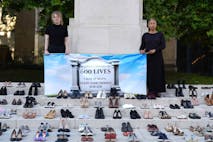
Analysis
Angeline Tan
·
Analysis
Cassy Cooke
·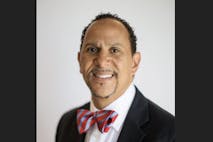
Human Interest
Christina Marie Bennett
·
Media
Christina Marie Bennett
·
Activism
Christina Marie Bennett
·
Issues
Christina Marie Bennett
·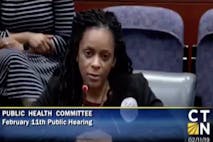
Activism
Christina Marie Bennett
·